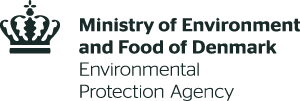Chemycal has been acquired by 3E
Learn MoreChemycal has been acquired by 3E
Learn MoreDiscover how Chemycal PRO helps you boosting your regulatory monitoring:

This report evaluates the pesticide tax, which was converted from a value tax in 2013 to a tax differentiated according to the pesticides' environmental and health impact.
The overall overall purpose of the project has been to evaluate how the change in tax has affected farmers 'pesticide consumption, and the extent to which farmers' response to the tax depends on farm characteristics, but also on farmer characteristics such as decision style, risk perception and motivation.
The analyzes of pesticide consumption show that there has been a substitution against less stressful pesticides, so that the average burden (B per ha) of the farms has been reduced by 16 per cent. after the imposition of the tax (between the years 2012 and 2017). But there are differences between companies' changes in pesticide consumption. Plant and pig farms have reduced their load more than cattle farms. One reason is that these types of farms often grow crops that were typically treated with the funds that received the highest tax increases. Farmer characteristics, such as use of information, differences in motivation and risk perception affect pesticide consumption, but they do not explain much of the changes in pesticide load after tax.
CONTINUE READING ON mst.dk
2013 © MyChemicalMonitoring. ALL Rights Reserved. About Us | Terms and Conditions